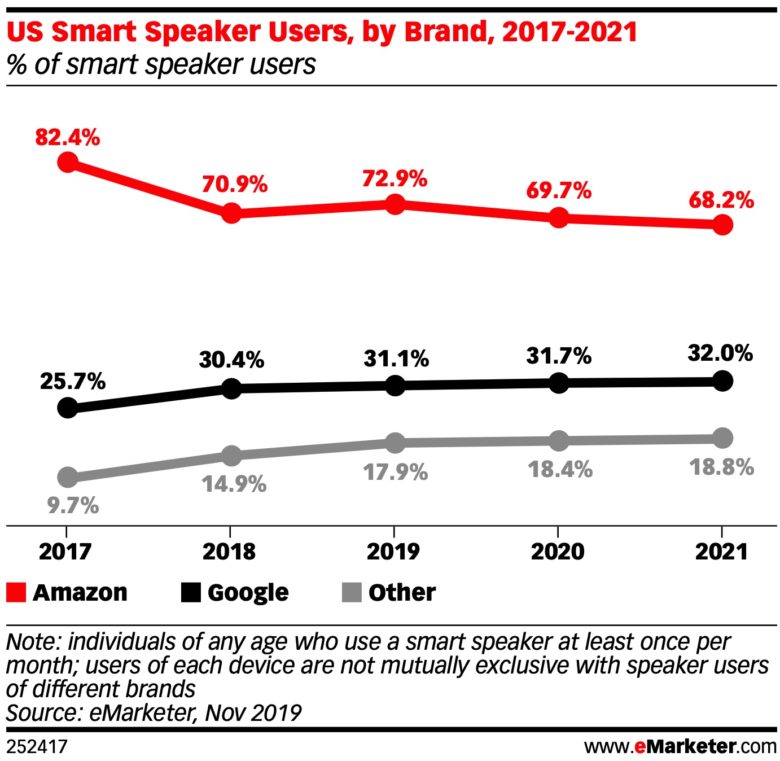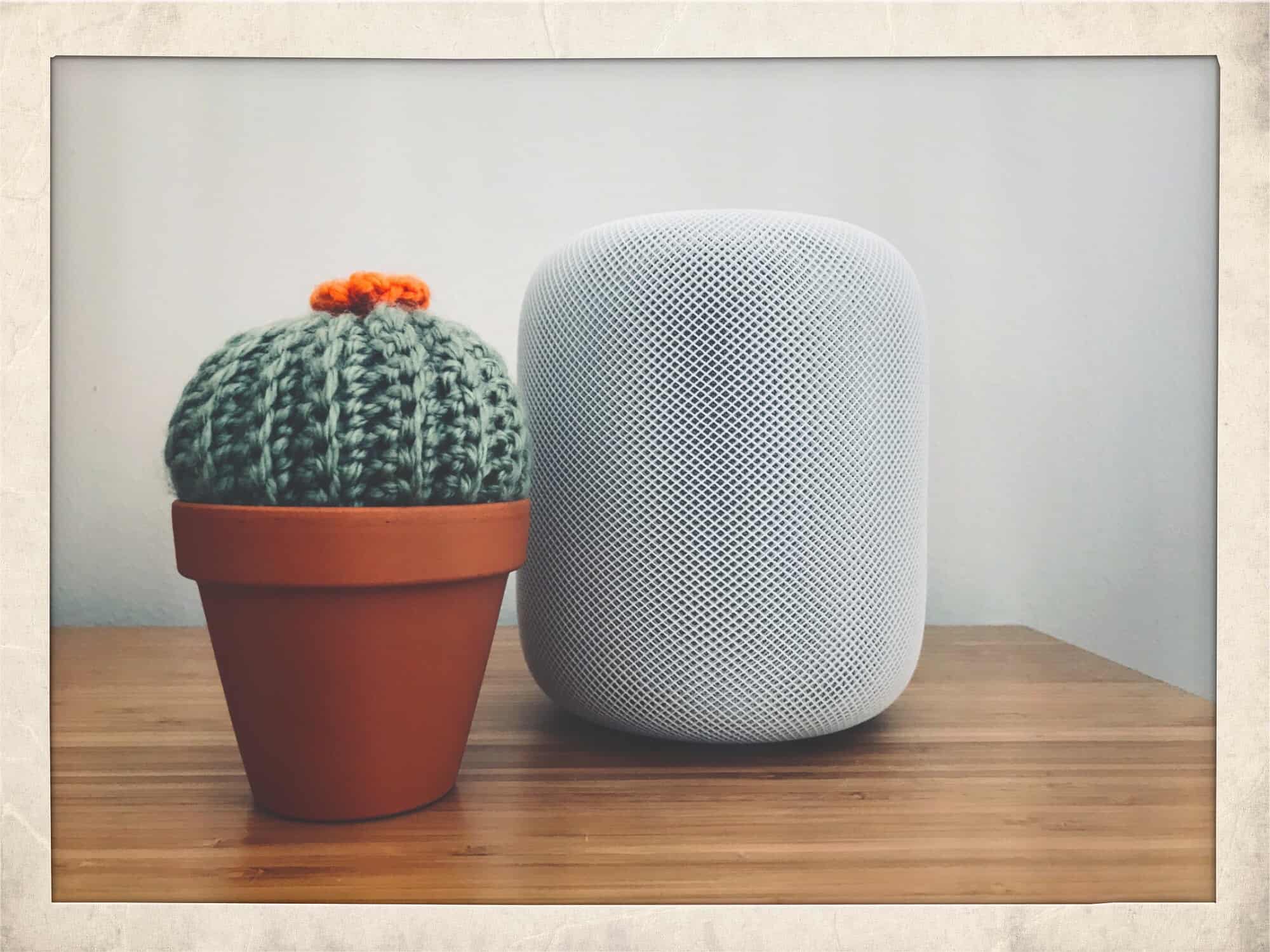Apple’s HomePod may be two years old, but it may as well be a total newcomer based on its percentage of the overall U.S. smart speaker market.
According to a new report from eMarketer, Apple joins smart speaker brands like Harmon Kardon Invoke and Sonos One in the “other” category of speakers. In total, “other” smart speakers make up just 18.4% of the overall U.S. market. Meanwhile, Amazon hoovers up 70% of sales, followed by Google with 31.7% market share.
In case you’ve done a bit of mental math, yes, those numbers add up to more 100%. That’s because some smart speaker users have more than one brand of speaker.
“Since Amazon first introduced the Echo, it has built a convincing lead in the US and continues to beat back challenges from top competitors,” said Victoria Petrock, a principal analyst at eMarketer. “We had previously expected Google and Apple to make more inroads in this market, but Amazon has remained aggressive. By offering affordable devices and building out the number of Alexa skills, the company has maintained Echo’s appeal.”

Photo: eMarketer
Smart speakers are still a minority of smart speakers
The firm thinks that smart speaker users will continue to rise, although growth will slow in the next several years. That’s especially likely to happen as more devices come with a smart assistant built in. That means that users don’t necessarily have to own a standalone device. This year, eMarketer thinks there will be 83.1 million smart speaker users in the United States. That’s 13.7% overall growth from last year.
“Smart speakers were designed as entry-level devices to get more people used to voice-controlled technology,” Petrock said. “Over time, we’ll see slowing growth in the number of smart speakers as people turn to voice assistants built into other things within homes, vehicles and on-the-go. Amazon’s next challenge will be to maintain its dominance in these other environments as well.”
Apple introduced smart assistants to many people with Siri’s debut on the iPhone 4s in 2011. However, in terms of functionality and willingness to roll out standalone smart speakers, Siri has long fallen behind rivals. One likely reason for this is that Amazon and Google have small, budget options available, such as the Amazon Echo.
Apple, meanwhile, has so far been resistant to rolling out a cheap HomePod. That’s possibly because it views sound quality as the chief advantage of HomePod, instead of smart speaker functionality. That would be harder to replicate on a simpler, cheaper device.
Source: eMarketer


